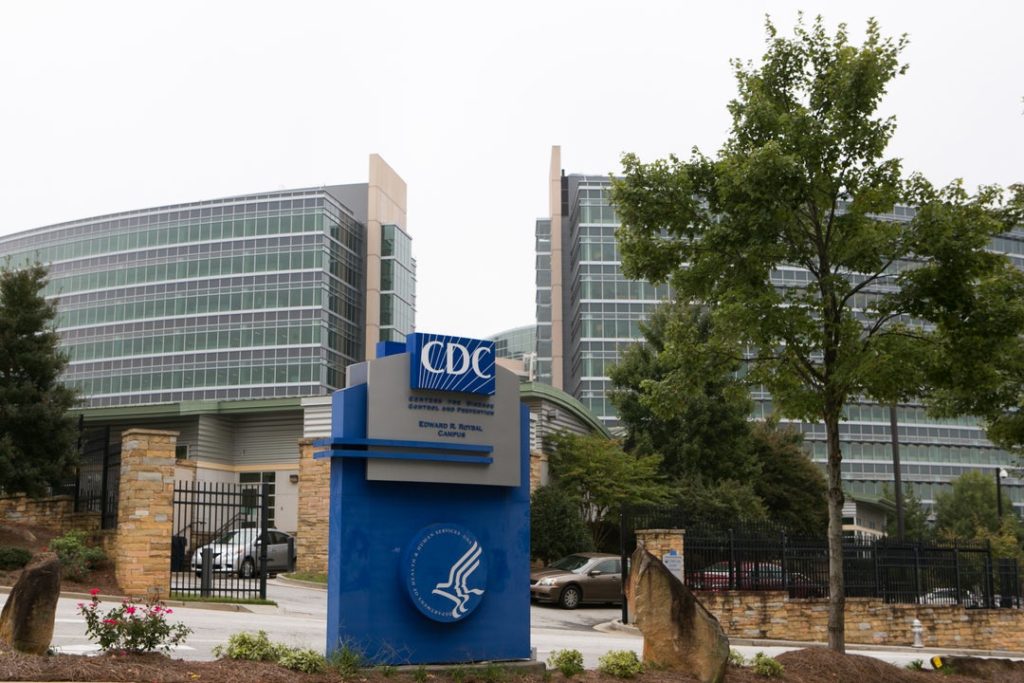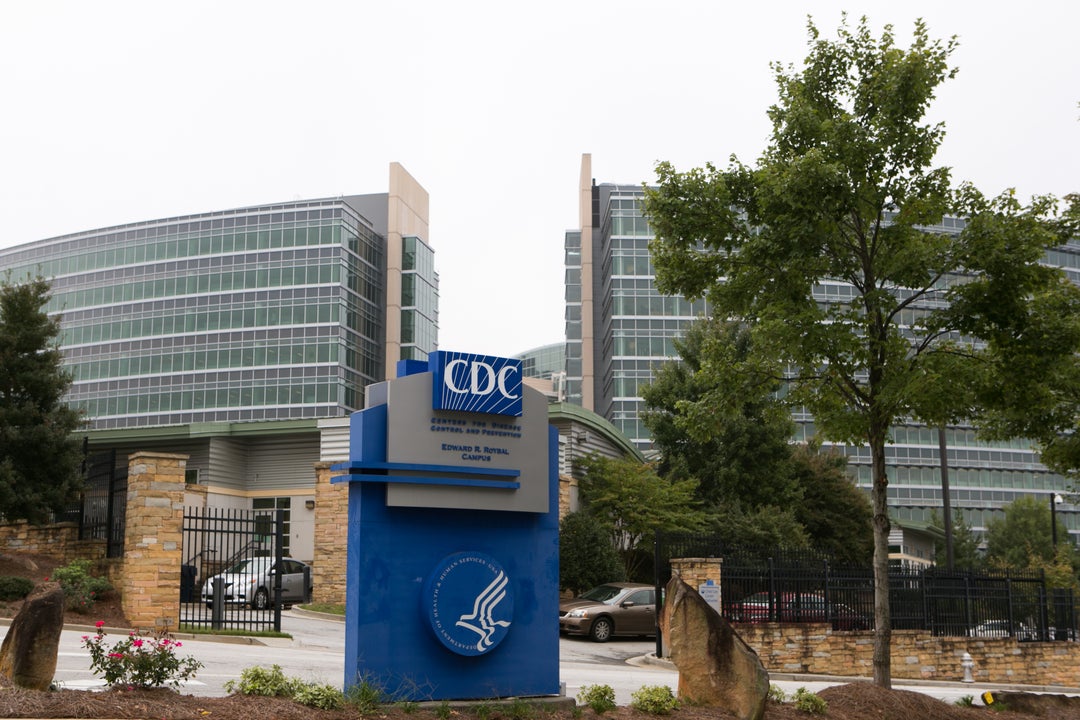Scientists outraged by White House appointees’ meddling with coronavirus information: ‘Outright egregious’ – USA TODAY

Scientists and physicians reacted with words such as “aghast,” “despicable” and “outrageous” over the weekend as news spread that White House appointees interfered with a basic national public health report when it conflicted with President Donald Trump’s coronavirus messaging.
Michael Caputo, the Health and Human Services assistant secretary for public affairs, acknowledged Saturday that since June, he and an advisor have been scrutinizing and at times pushing for changes to a weekly health report distributed by the U.S. Centers for Disease Control and Prevention.
The meddling, first reported by Politico, included efforts to stop the publication of a report last week on the use of hydroxychloroquine, a malaria drug often touted by Trump, delay a 10-state study of COVID-19 infection statistics in June and another on the spread of coronavirus at a Georgia sleep-away camp.
The Morbidity and Mortality Weekly Report is a series of dry and sometimes dense brief reports on public health incidents that comes out on Thursdays. They typically describe specific events or topics and are an important way for doctors and health officials to get the latest data.
The sprint to create a COVID-19 vaccine started in January. The finish line awaits.
Dr. William Schaffner, who is on the publication’s editorial board, said he was “aghast” and “appalled” by the reported attempts to delay, stop or change reports. He described the publication as a vital part of the global conversation among public health officials who track diseases and dangers.
“It has been the voice of the U.S. government’s health system, of integrity and scientific rigor, for years, said Schaffner, a professor and infectious disease expert at the Vanderbilt University School of Medicine in Nashville, Tennessee. “Indeed, the MMWR has been a model for other countries’ ministries of public health for creating similar newsletters in their countries.”
The interference is not just anti-science but active disinformation intended to deceive the American public, said Dr. Eric Topol, a professor of molecular medicine at The Scripps Research Institute in La Jolla, California.
“This is outright egregious. It’s despicable,” said Topol, adding that Dr. Robert Redfield, the head of the CDC, and others in leadership have allowed the agency to be hijacked by politics.
Coronavirus in America: Here’s how the virus is spreading, state by state
“What we’re seeing is multiple actors, important people who are just laying down, who are complicit with the anti-science machinations of the Trump administration,” he said.
In an interview Saturday with The Washington Post, Caputo alleged the content of the MMRW, as they’re known, is being politicized by the agency itself.
“But in an election year, and in the time of COVID-19, it’s no longer unanimously scientific. There’s political content,” The Post quoted Caputo as saying.
Scientists and public health officials vehemently disagreed.
Writing on Twitter, Dr. Sherri Bucher, a global health researcher, said: “There are no words to articulate how horrific this is. Trust & credibility, shattered, overnight. MMWR has been, for a long time, one of the most reliable, steadfast, scientific resources; unquestioned veracity, impeccable reputation for quality of data/analysis. No longer.”
MMWR was previously noticed but not edited as part of ‘political process’
It is not unusual for communications people within the CDC to be involved in an MMWR report before publication, said Dr. Patrick Remington, a member of the journal’s editorial board and a former CDC staffer.
That involvement, however, was previously restricted to officials within the agency who let political leaders know what was coming so they could be prepared with a communications strategy, said Remington, now associate dean for public health at the School of Medicine and Public Health, University of Wisconsin-Madison.
“What is unusual is the allegation that the political process is attempting to influence the scientific conclusions. And that’s a concern,” Remington said.
A member of the editorial board for 14 years, Remington said the body meets roughly once a year to help decide the publication’s big-picture vision. Its last meeting was in February.
Coronavirus Watch: An American dies of COVID-19 every 2 minutes
The board is not involved in the publication’s day-to-day operations, and members knew nothing about the accusations of interference until they read about it elsewhere, he and others said.
Jeff Niederdeppe, another member of the MMWR editorial board and a professor of public health communications at Cornell University, said he’s concerned political meddling — as described by media reports — could erode public faith and cause long-term damage to the publication.
“The big issue here in my mind is the fundamental undermining of trust,” he said, both in the CDC generally, and among the public health practitioners who rely on the MMWR to make policy decisions. “If that very foundation is being politicized, it’s incredibly alarming.”
Regaining trust is a challenge, he said, and should begin with an immediate response from the CDC, which so far has not commented on the allegations.
If the concerns are confirmed, Niederdeppe said, “I’d be interested in convening with the other members of the MMWR editorial board to figure out what we could do in this role.”
Published since 1878, MMWR has been a ‘go-to public health publication’
The Notes from the Field section of the MMWR, as it’s known, are often instructive previews of small investigations done by state or local health departments that illustrate a specific problem.
“They’re like an alert mechanism,” said Schaffner.
Recent MMWRs have described American heat-related deaths by sex and age, top foods contributing to high-salt intake, an outbreak of tuberculosis among workers at food processing plants and drinking rates among pregnant women.
Dr. Jennifer Kates, senior vice president of the Henry J. Kaiser Family Foundation, a nonprofit focused on health issues, described the MMWR as “the go-to public health publication.”
The MMWR predates the CDC itself, having begun as a publication of the U.S. Public Health Service in 1878.
Kates said she was disturbed by what appears to be the insertion of politics into a well-respected scientific journal. “In general, the politicization of COVID has been the enemy of public health,” she said.
MMWR reports are written by CDC staff as well as public health workers and physicians nationwide. The one- to two-page reports are known for their meticulous and careful editing, a process those who’ve gone through it described as harrowing.
“If you’ve ever been involved as a co-author of one of those reports, it’s painful how carefully every sentence is reviewed for scientific rigor, for precision,” said Schaffner.

Published 9:14 PM EDT Sep 13, 2020
